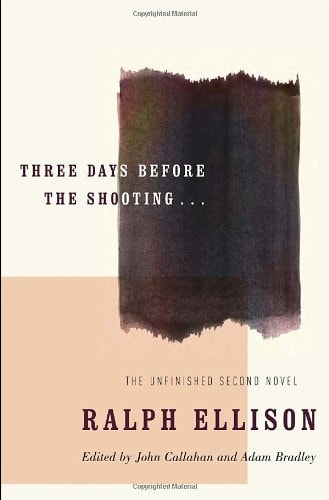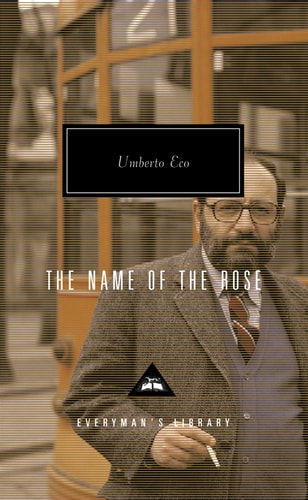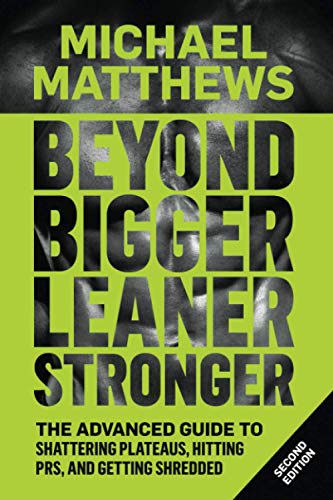Millions of Books, Authors and Publishers to discover. Explore now.




















One Sentence-Summary: Deep Work proposes that we have lost our ability to focus deeply and immerse ourselves in a complex task, showing you how to cultivate this skill again and focus more than ever before with four simple rules. Favorite quote from the author: “If you don’t produce, you won’t thrive, no matter how skilled or talented you are.” Deep Work suggests that being able to completely immerse yourself in a complex task is a rare, valuable and meaningful skill. The second part of the book then outlines four rules you can use to cultivate a deep work ethic. Here are 3 lessons from Deep Work to help you go from busy to brilliant: 1. There are four strategies for deep work, all of which require intention. 2. Productive meditation can help you work deeper, even while you’re taking a break. 3. Stop working at the same time each day. Deep Work Summary Lesson 1: Use one of these four deep work strategies, but be intentional about it. Cal Newport isn’t one of those “one-size-fits-all-advice” kind of people. He knows that different things will work for different people, so when making his case for deep work he suggests four different strategies: 1. The monastic approach. Monastic comes from monastery – the place where monks live. It means shutting yourself off completely, for example by moving to a cabin in the woods to write a novel, and not come back until it’s finished. 2. The bimodal approach. This prioritizes deep work above everything else. You could set a 4-6 hour block each day for deep work, for example, where you lock yourself in your office, similar to the monastic approach. However, once that block is over, you’re free to do everything else that might be on your plate. 3. The rhythmic approach. This chunks down your work into time blocks, similar to the Pomodoro technique , and uses a calendar to track your progress. For example you’d plan your week ahead of time and put 10 blocks of 90 minutes on your calendar, and make working with timed blocks a habit. 4. The journalistic approach. If you have a busy daily routine, this works well. What you do is to simply dedicate any, unexpected free time to deep work. Being intentional about your deep work approach requires monitoring how you spend your time, so one of your first steps in making this decision should be to track your habits . You’ll quickly be able to separate productive from unproductive time and spot patterns. Lesson 2: Make the most of unproductive time with productive meditation. This is an idea that Cal Newport calls it productive meditation, and it comes down to using your “unproductive” time to do deep thinking. For example, if you’re taking the subway to work each morning, and know you have 30 minutes to and from work, in which you can’t do much else, use this time to try solving a complex problem in your mind. Commuting, showering, household chores, buying groceries and taking a walk (with or without your dog) are all great opportunities to think. The next time you have some “down time”, in which you do menial tasks, latch on to a big problem, try to see sub-problems of it, break it down and solve it. Lesson 3: Quit work at the same time each day, and stick to it. Cal has a habit of ending his work day at 5:30 PM, every day. No emails, no internet, no to-do lists, no computer after that. He describes his practice in this 7-year old blog post , and while his systems evolve, planning both work and free time have remained a constant factor. Your brain needs some space each night to wind down, and it won’t get that if you have an as- much-as-possible work ethic. Limit yourself by quitting work and not checking email, or, even better, shutting down your computer, at the same time each day. This way, you’ll have a fixed slot of free time every day to recuperate. Your mind will keep working below the surface , but you won’t burn yourself out by working around the clock.
For Book DetailOne Sentence Summary: The 7 Habits Of Highly Effective People teaches you both personal and professional effectiveness by changing your view of how the world works and giving you 7 habits, which, if adopted well, will lead you to immense success. This book has sold over 25 million copies. If Stephen R. Covey had any clue about what a success The 7 Habits of Highly Effective People would be when he published it in 1990, but, even several years after his death, it’s still the bible of leadership and modern management. The original seven habits are: 1. Be Proactive 2. Begin with the End in Mind 3. Put First Things First 4. Think Win-Win 5. Seek First to Understand, Then to Be Understood 6. Synergize 7. Sharpen the Saw The first three serve your own independence, so that you may “win in private,” as Covey put it. The second three aim to shift your focus to interdependence. When you strive for cooperation instead of competition, you’ll also “win in public” and find worldly success. The last habit serves your own renewal so that you’ll never burn out or overextend yourself. Let’s look at the following 3 in more detail: 1. Do the funeral test. 2. Learn how to say no. 3. Practice active listening. Time to learn how to become highly effective both at work and in life! Lesson 1: Do the funeral test. This is the habit that Covey calls “Begin with the End in Mind”. He issues a warning that plowing away and getting a massive amount of tasks done in a preferably short time (i.e. being efficient) is only useful when you’re plowing in the right direction. The classic analogy here is the ladder you’re climbing furiously, only to find out it’s leaned against the wrong wall when reaching the top. Only if you’re clear about your major, long- term goals can you align each and every single one of your decisions with them. The best way, by far, to get clear about those goals is to do the funeral test. Ask yourself: 1. What do I want people to say about me at my funeral? 2. As what sort of person do I want to be remembered? 3. For what do I want to be remembered? Depending on your number of relationships (family, friends, clients, partners, customers), you can also ask yourself how many people will be there to mourn your death. As Steve Jobs said: “All external expectations, all pride, all fear of embarrassment or failure–these things just fall away in the face of death, leaving only what is truly important.” Truthfully answering those questions will make you realize you might not want that out-of- the-suitcase, business class lifestyle, or that really all you ever wanted to do was dance . So be bold and ask them. Lesson 2: Learn how to say no. Knowing exactly where you want to go makes it easy to find out what’s important to you, and what not. When you know your final goal, you’ll at least have an inclination for each to-do on how important it actually is. You’ll often find that the important things aren’t urgent and vice versa . That means some things don’t deserve to be done at all. To all those things, you’ll eventually have to say no. It’s not easy, especially if money’s involved. But, as Covey says: “Put First Things First.” Sometimes, tempting rewards will be dangled right in front of you, which is when it’s time to pull out the funeral test again to see whether those rewards deserve to be chased. Derek Sivers in this regard, who says it’s either a hell yeah, or a no . He’s incredibly focused on a few things , but those things create all the meaning he needs in his life. Lesson 3: Practice active listening. The good thing about saying no to doing a lot of things is being able to spend a lot more time actually listening to others. 1. You’re listening to understand the person you’re listening to, not primarily to give advice or respond. 2. You make sure you understand by repeating back to them what they said and mirroring their emotions. 3. You help them structure their own thought process. This was one of the Covey calls this “Seek First to Understand, Then to Be Understood.” It is a call to practice active listening and empathy. Just like you get suspicious of your doctor when he prescribes you hefty antibiotics after hearing you cough just once, we don’t tend to trust people, who we think don’t really understand us. Make an effort to listen to understand, instead of listening to respond. A good way to start this practice is by simply talking less . The 7 Habits of Highly Effective People is an absolute classic. It’s not a step-by-step how-to book, however. The lessons will take you a while to implement since they are general principles. But that also means they’re timeless and have a powerful impact once you manage to do so.
For Book DetailOne Sentence-Summary: The Daily Stoic is a year-long compilation of short, daily meditations from ancient Stoic philosophers like Seneca, Epictetus, Marcus Aurelius, and others, teaching you equanimity, resilience, and perseverance via the three Stoic disciplines of perception, action, and will. Favorite quote from the author: “God grant me the serenity to accept the things I cannot change, the courage to change the thingsI can, and the wisdom to know the diffrence.” Stoicism is a popular philosophical concept that was born in Ancient Rome and Greece. Today, thinkers and researchers still find it relevant as it delivers valuable life wisdom. The stoic philosophy is simple in nature, but humans are complex beings that often overcomplicate things. Perhaps that is why we find it so difficult to implement. The Daily Stoic by Ryan Holiday is a great way to start learning about this philosophy and applying it in your own life. The book has 366 short readings that will help you find happiness in your day-to-day struggles—and eventually even in the most challenging situations. Here are the three most important lessons from the book that map the core principles of stoicism: 1. Perception gives course to your thoughts, actions, and ultimately everything you do. 2. We can change the course of our life by actively managing our actions and responses. 3. Will is the internal power we as humans possess and use to nurture hope. Philosophy is a large subject, so studying it may take much more than reading a summary about Stoics. However, these three core lessons might take you one step closer to understanding what a life lived in virtue means. Lesson 1: As humans, we must learn to control our perceptions about the world if we want to live purposefully. Stoicism is a philosophy that teaches us how to control our emotions and maintain emotional balance in all things. It is the practice of being able to achieve this state of emotional balance by training the mind to be objective, calm, and rational. The three core principles of stoicism are perception, action and will. We must learn how to master perception first by understanding that we can never control anything external to ourselves. All we can do is control our thoughts, actions and reactions. By mastering these things, we can achieve a greater level of happiness and satisfaction in life. You can’t control what happens to you, but you can control how you react to it by using your perceptions to guide your actions. For example, imagine someone steals your prepacked meal from the common fridge at the workplace. You may be upset but that does not mean you have to be angry or spend all day complaining about it. Instead, you can choose how to react appropriately and objectively. Either let it go or place a formal complaint, but never worry without a purpose. Lesson 2: Work on controlling your actions, instead of letting them control you. Mastering a skill is not an easy feat, but learning about the stoic philosophy will help you become much calmer, centered, and aware of your actions. Then, you’ll be able to focus on objective perceptions, leave your biases behind, and act accordingly. Action is a core component of Stoicism after perception is formed. This is because if your perception is in control, you are the one who is acting. But if your action is in control, then it’s like you are being acted upon. You should always be the actor behind every step of your life. Still, not every perception requires an action. What really should matter is the one thing that you can actively change. A perception remains just that without action. Therefore, to master the skill of being a stoic, you must first analyze your thoughts. Note if they’re subjective and try to move objectively through the chain of thought. Then, dismiss them if you cannot find a way to change the situation. Naturally, there’s only so much you can act upon. If someone says something mean about you, you’ll first form a perception about it. You’ll be angry, indifferent, or anything in between. Now, is there anything you can do about it? No – so there’s no need to act upon that. And there you have it – the Stoic philosophy applied. Lesson 3: Will sticks with us when everything else fades. The third core concept of the Stoic philosophy is will. So far, we’ve explored how perception must be interpreted, changed, and how action is a result of it. Action is not always necessary, and it’s a powerful act that can change our life. Will is an inner power that gets us through life’s bumpy rides. It’s the act of trying more or keeping hope alive, or pushing through hardship when life feels impossible. It also helps us see past the obstacle and build new, better ways from whatever sour lemons we’ve been thrown. Will is often interpreted as an unbreakable ambition to make the impossible possible. While doing such things indeed comes from our inner force, stoics find will to be more about a sense of humility, resilience, and acceptance. Under the toughest hardships that life prepares for each and every one of us, it is will that helps us go through. Both types of will are within us, but in times of true heartbreak, pain, and hurt from within, the silent will is our friend. When life sends us obstacles and challenges to bypass and grow stronger, ambitious will can take us farther. As humans, we have to discover these powers within ourselves and learn to harness them. The Daily Stoic Review The Daily Stoic delves into the three most important concepts of stoicism by studying 366 meditations from ancient renewed thinkers . The book addresses the natural thinking process of humans by pointing out areas of improvement that we can work on through a fresher perspective, acts of change, and the power of will. While highlighting the main concepts of this philosophy, the author proves a core point of thought – we can improve our life right away, starting from the way we think. A good life is all about perception, and material things rarely bring long-lasting happiness. Continuous improvement is the key to achieving wisdom.
For Book DetailThe Subtle Art Of Not Giving A F*ck One Sentence-Summary: The Subtle Art Of Not Giving A F*ck does away with the positive psychology craze to instead give you a Stoic life that might not always be happy, but meaningful and centered only around what’s important to you. Favorite quote from the author: “Who you are is defined by what you’re willing to struggle for.” The Subtle Art Of Not Giving A F*ck , Mark Manson’s first “proper” book, this instant New York Times bestseller is a no BS self-help book for people who usually hate self-help. Mark Manson gets that life has become overwhelming and the only way to find our center around the things that really matter to us is to not give a f*ck about anything else. Here are 3 favorite lessons: 1. Values you can’t control are bad values to follow. 2. Don’t believe you know anything with certainty, for it keeps you from improving. 3. Trying to leave a legacy might ruin your life. The trick of not giving a fuck about most things is that you’ll be able to give one about what really matters to you. The Subtle Art Of Not Giving A F*ck Summary Lesson 1: Only hold values you control. Mark is a very Stoic guy and it shines through his writing and advice. A common idea in Stoicism is to focus only on the things you can control . This is easy enough to understand and implement when it comes to your actions, but it can be applied to more intangible aspects of your life as well. Take your values, for example. I know it’s hard to put them into words, but if you try to describe yourself in, say, three adjectives, you already have a good idea of which values most dictate your life. Let’s say you chose the words honest, punctual and popular. Here’s where Mark makes an interesting remark: Only choose to have values you can control. Most of us give up some of our ideals as we grow up, try to have a career and make money. While that’s just part of real life, it’s important you don’t hand off the steering wheel altogether. Values you don’t control are bad, because they’ll be a constant source of unnecessary suffering in your life. When we look at the three we just mentioned, honesty is 100% in your control. Only you know how honest you are, but no one else needs to. Punctuality is partially in your control. If you always leave with plenty of buffer time, you can compensate for most potential obstacles. Popularity, however, is totally out of your grasp. Sure, you can be nice and friendly to everyone, but you can’t control other peoples’ opinions. Some will always hate you, no matter what you do . Therefore, popularity isn’t the best value to focus on and you could try replacing it with one more controllable, such as kindness. Lesson 2: Certainty hampers growth. What a great principle distilled into just three words: certainty hampers growth. Imagine you could choose between two modes of moving through the world: one in which you think everything you know is 100% true and one in which you think nothing you know is 100% true. Both are stressful, but which one do you think would help you make better decisions? The latter, of course. While there’s some middle ground to be found here, rejecting the idea that you know anything for sure is a great base to start learning from. This is true for discovering factual knowledge , such as using the scientific method to build business hypotheses helps arrive at better conclusions, but it is also true for gaining conceptual knowledge . The second kind is more implicit knowledge about the relationships between various entities. Let’s take your place in the social hierarchy at school, for example. If you’re convinced you’re ugly, you’ll be sad a lot. But if you notice that you get lots of compliments at school, people call you charming and some have a crush on you, that’s evidence your brain is playing you with false certainty. If you allow yourself to have a little doubt, you can then disprove this limiting belief you hold about yourself. Lesson 3: Don’t obsess about leaving a legacy. Here’s an uncomfortable, but important reminder: You’re going to die one day. We all are. Whether we admit it or not, when the time comes closer, we’re all scared. That’s why many of us want to leave a legacy , myself included. However, Mark says that might ruin our short amount of precious time here on earth. The more we’re driven to build a great body of work, the more start chasing fame, working too much and focusing on the future. What if instead, we just tried to be useful in the present? We could still help a ton of people, enjoy our days and fully be here, while we’re here. Mark’s stance is clear: Find ways to bring yourself, your loved ones and the people you meet joy in the now and let the legacy part take care of itself.
For Book Detail
![[The Prague Cemetery] (English and Korean Edition)](../upload_book_cover/63842BR_686cec51e13216191.jpg)









